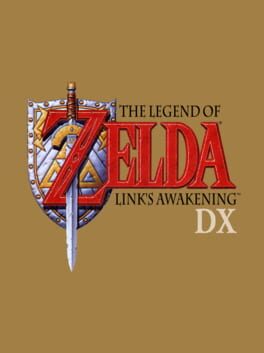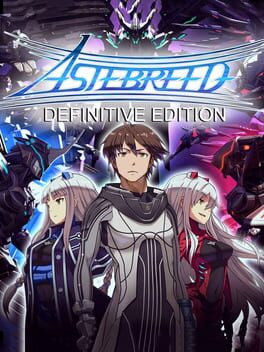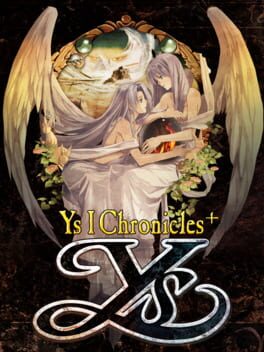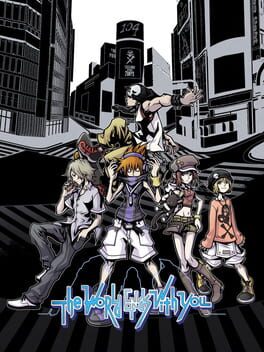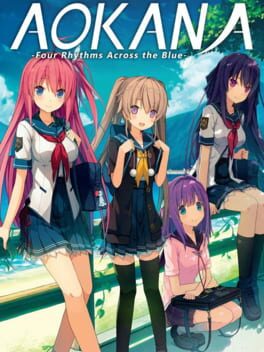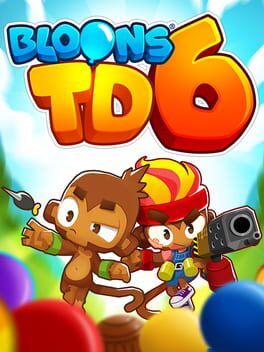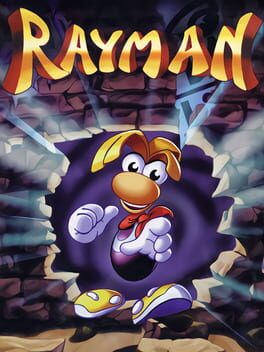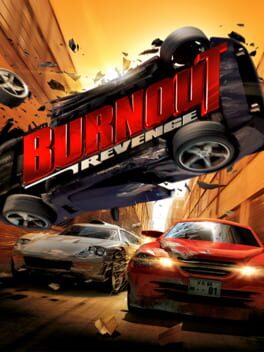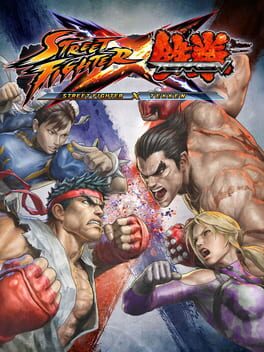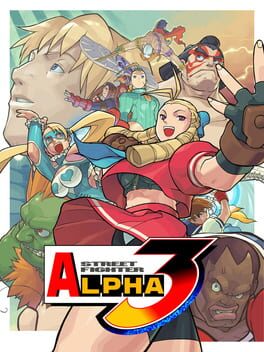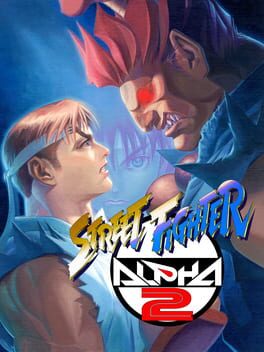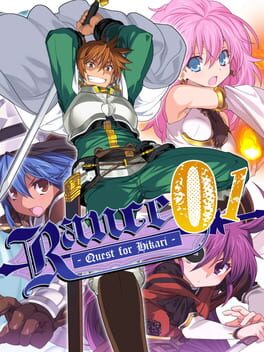bruno_calixto
34 Reviews liked by bruno_calixto
I first played Link's Awakening on my 3DS years ago. I got it on the eShop one day after a Youtuber I liked was let's playing it, and seeing as I was a Zelda fan at this point, I figured I'd enjoyed it. I think I got up until Eagle Tower and dropped it? I at least don't remember ever beating this game. Fast forward to the beginning of 2022, I had just gotten the remake for Christmas and was excited to play it. I actually beat that version this time and had a great time. Now with this marathon, I can finally beat this version of the game. I think overall I might prefer the remake, but this version is still good and Link's Awakening is still a good game overall.
Also quick note before the review: I was originally going to play the three CDI Zelda's next but decided against it so I'm skipping those. I also know this is the DX version, and that technically released after Ocarina of Time, however the majority of this game is still the original Link's Awakening which released 5 years before OOT so I just decided to play this first.
Anyways, Link's Awakening. This released 2 years after A Link to the Past and compared to that game and even the Zelda games before it, this game's plot and general atmosphere is very different. The story this time around is pretty simple. This is the same Link as the one in ALTTP and he regularly goes out to sea to train in other countries in case of further threats. One day, a storm destroys the boat he is on and he is washed ashore on Koholint Island. This girl named Marin finds him and brings Link to her home where he wakes up to see her and her father Tarin. Link leaves the home hoping to learn what this island is about and how he can get off of it. Along the way, he meets an owl that tells him to escape this island he must get the 8 instruments of the sirens and wake the wind fish (who resides in a giant egg) with them. Halfway into the adventure however, Link finds out that the entire island may just be a dream created by the wind fish. Whether that's true or not, Link continues to gather the instruments so he can wake the wind wish and get off the island. It's a simple plot but the first thing you'll notice is that it's WEIRD. I did not mention Zelda because she is not in this game. No Triforce or Ganon either. The big staple characters aren't in this game, instead it's an entire brand new cast. You have Marin and Tarin, the other villagers of the town they're in. There are many animal NPC's through out the world, there's even and animal village too lol. The villagers eventually can't recall how long they've been on the island. Throughout the game you even start seeing things from other Nintendo games like the many different Mario enemies, a girl gives you her photo and she looks just like Princess Peach and there's even an enemy that looks and acts like Kirby. This along with the general plot gives this game such a weird, dream-like atmosphere. That's kind of a joke but it's true, they really did a great job at making this game feel like a dream. This is honestly my favorite aspect of this game; just how weird and different it feels from other Zelda games.
The general gameplay is similar to ALTTP, tho it's not quite as linear as that game. You're still going through dungeons and what not but they aren't marked on your map. It can be a bit cryptic at times, trying to figure out how to get into each dungeon, because now you have to find each dungeons respective key to unlock it. Besides that, the overworld itself is pretty fun tho it can get a bit tedious to backtrack through. There are a couple warp points throughout the world you can warp to, but I think there should've been more because even with them, backtracking is plentiful and it's not super fun in this game. The reason for that is, and it's the game's biggest issue, there's only two item slots in this game and stuff like the power bracelet and even the sword takes up a slot. I know this is a Gameboy game, so there was only A and B to work with but having to constantly switch between items to explore can get a bit tiresome. That plus when you don't have an item, needed to clear an object, equipped, an unskippable message appears every time to let you know you need that item. So, whatever you do, don't touch any rocks without having the power bracelet equipped. Like I said, this is my biggest annoyance in the game and while I still enjoyed the overworld despite this, it can be annoying due to these issues.
Exploring the overworld, you'll find many optional secrets just like ALTTP. Like that game, there are caves all throughout and you'll usually need a dungeon item to get whatever treasure is inside. The puzzles in these might actually be more complex than ALTTP's, either way it's good that they're back in this game. You'll also find those weird NPC's throughout the world as well. There's actually a long trade quest in the game, that you would think would be optional due to how long and exploration based it is but it's not. It's required at several points to progress and also the reward you get at the end of it is too. It's not the worst thing in the world but I had forgotten how to do parts of it so I had to look some of it up online so that might stump new players.
Next I want to talk about improvements this game makes compared to past games. This is a Gameboy game so obviously I can't compare its visuals to ALTTP but for a Gameboy game this looks super nice and compared to the first two Zelda games, this also looks nice than them. They did a great job with all the pixel art in this game and I can see why some people prefer this version of the game compared to the remake, based on the art style since it's super charming here. This game also improved on stuff from ALTTP as well funnily enough. You could collect items with you sword in Zelda 1 but not ALTTP for some reason, luckily, you're able to in this game again. I also found the Pegasus Boots better in this game due to you not needing to press and hold the item button again and again when you want to dash constantly. You just need to hold it and Link will start to dash on every screen he's on now. Something that's kinda weird compared to past game is the rupees. Every rupee that spawns in the overworld from cut bushes or defeated enemies is a single rupee. The only way to get more than that at once is with chests and they can give you 20, 50, 100 or even 200 rupees. It's an interesting change but probably a needed one since this was a Gameboy game and this game was already probably pushing the system to its limits.
The dungeons in this game are actually really solid. They're not as vibrant or as memorable visually as ALTTP dungeons however they're full of puzzles, maybe even moreso than ALTTP. That game has a bit more of a focus on combat, and I still might prefer that games dungeons just because of the aforementioned visual memorability. But even still, very good set of dungeons that even stumped me a bit at times. The items you get in these though are pretty solid. You have the aforementioned power bracelet, the magic rod from past Zeldas, the hookshot from ALTTP as well as the flippers. A lot of these are just older items but the standout item, and the one that actually makes the game more fun to play in general tbh, was the roc's feather. When you equip this, you can jump. That's it but it makes a world of difference in how you can play and can absolutely just destroy some bosses super-fast if you're skilled enough. If I didn't need any item to progress, I just went with my sword and the roc's feather. That was my go to set of items. There was an annoyance I had with the items. Since there's no way to speed up text, you'll be seeing the same dialogue for the map and compass over and over again. The map is fine since it's so short but the compass is like three times as long or something and they decided to let you know there's a new sound that plays whenever a chest is in the same room as you. That's cool...you don't have to tell me every time I do a dungeon tho! The bosses at the end of dungeons might also be an improvement from ALTTP. They aren't as flashy of course but they also don't require red/green potions sometimes to defeat, they all have dialogue this time which gives them more character and they're also just really weird or goofy which fits the setting of the game. I'd say they're overall maybe simpler to fight than ALTTP's bosses but simple doesn't equal bad. The final boss tho, had several different phases that took the form of bosses you fought in past games, and it also made use of several of Link's items. Because of that, it was easily the best boss in the game.
The soundtrack in this game, even tho its a Gameboy game, is really melancholic at times and is charming as hell. The signature Ballad of the Wind Fish(I sent Marin's version is easily my favorite song in the game. Mabe Village,Tal Tal Heights and the Ending Theme were my other favorites. The whole soundtrack is good however, and something else this game had over ALTTP is the fact each dungeon had their own unique theme. Now I can't say I prefer any of them over the two ALTTP had but they're still mostly solid here.
While I did have some issues that held this game back from being better than ALTTP, this is still a really solid Zelda game and one that is unique in the story it tells and the atmosphere it provides. It must've been amazing having a game like this on the go back in the day. Like I said as well, I do prefer the remake just because of the some of the improvements it made. I'm kind of known as the original game enjoyer, so for me to prefer a remake over the original is very odd. We'll get to that game way down the line but even if I like that one more, it doesn't stop this version from being good. It certainly has its own charm as well.
I think I'm going to take a small break in between this game and Ocarina of Time. I'm thinking maybe my Plants vs Zombies replay is next? Either way, stay tuned for that and then Ocarina of Time after in the near future!
Also quick note before the review: I was originally going to play the three CDI Zelda's next but decided against it so I'm skipping those. I also know this is the DX version, and that technically released after Ocarina of Time, however the majority of this game is still the original Link's Awakening which released 5 years before OOT so I just decided to play this first.
Anyways, Link's Awakening. This released 2 years after A Link to the Past and compared to that game and even the Zelda games before it, this game's plot and general atmosphere is very different. The story this time around is pretty simple. This is the same Link as the one in ALTTP and he regularly goes out to sea to train in other countries in case of further threats. One day, a storm destroys the boat he is on and he is washed ashore on Koholint Island. This girl named Marin finds him and brings Link to her home where he wakes up to see her and her father Tarin. Link leaves the home hoping to learn what this island is about and how he can get off of it. Along the way, he meets an owl that tells him to escape this island he must get the 8 instruments of the sirens and wake the wind fish (who resides in a giant egg) with them. Halfway into the adventure however, Link finds out that the entire island may just be a dream created by the wind fish. Whether that's true or not, Link continues to gather the instruments so he can wake the wind wish and get off the island. It's a simple plot but the first thing you'll notice is that it's WEIRD. I did not mention Zelda because she is not in this game. No Triforce or Ganon either. The big staple characters aren't in this game, instead it's an entire brand new cast. You have Marin and Tarin, the other villagers of the town they're in. There are many animal NPC's through out the world, there's even and animal village too lol. The villagers eventually can't recall how long they've been on the island. Throughout the game you even start seeing things from other Nintendo games like the many different Mario enemies, a girl gives you her photo and she looks just like Princess Peach and there's even an enemy that looks and acts like Kirby. This along with the general plot gives this game such a weird, dream-like atmosphere. That's kind of a joke but it's true, they really did a great job at making this game feel like a dream. This is honestly my favorite aspect of this game; just how weird and different it feels from other Zelda games.
The general gameplay is similar to ALTTP, tho it's not quite as linear as that game. You're still going through dungeons and what not but they aren't marked on your map. It can be a bit cryptic at times, trying to figure out how to get into each dungeon, because now you have to find each dungeons respective key to unlock it. Besides that, the overworld itself is pretty fun tho it can get a bit tedious to backtrack through. There are a couple warp points throughout the world you can warp to, but I think there should've been more because even with them, backtracking is plentiful and it's not super fun in this game. The reason for that is, and it's the game's biggest issue, there's only two item slots in this game and stuff like the power bracelet and even the sword takes up a slot. I know this is a Gameboy game, so there was only A and B to work with but having to constantly switch between items to explore can get a bit tiresome. That plus when you don't have an item, needed to clear an object, equipped, an unskippable message appears every time to let you know you need that item. So, whatever you do, don't touch any rocks without having the power bracelet equipped. Like I said, this is my biggest annoyance in the game and while I still enjoyed the overworld despite this, it can be annoying due to these issues.
Exploring the overworld, you'll find many optional secrets just like ALTTP. Like that game, there are caves all throughout and you'll usually need a dungeon item to get whatever treasure is inside. The puzzles in these might actually be more complex than ALTTP's, either way it's good that they're back in this game. You'll also find those weird NPC's throughout the world as well. There's actually a long trade quest in the game, that you would think would be optional due to how long and exploration based it is but it's not. It's required at several points to progress and also the reward you get at the end of it is too. It's not the worst thing in the world but I had forgotten how to do parts of it so I had to look some of it up online so that might stump new players.
Next I want to talk about improvements this game makes compared to past games. This is a Gameboy game so obviously I can't compare its visuals to ALTTP but for a Gameboy game this looks super nice and compared to the first two Zelda games, this also looks nice than them. They did a great job with all the pixel art in this game and I can see why some people prefer this version of the game compared to the remake, based on the art style since it's super charming here. This game also improved on stuff from ALTTP as well funnily enough. You could collect items with you sword in Zelda 1 but not ALTTP for some reason, luckily, you're able to in this game again. I also found the Pegasus Boots better in this game due to you not needing to press and hold the item button again and again when you want to dash constantly. You just need to hold it and Link will start to dash on every screen he's on now. Something that's kinda weird compared to past game is the rupees. Every rupee that spawns in the overworld from cut bushes or defeated enemies is a single rupee. The only way to get more than that at once is with chests and they can give you 20, 50, 100 or even 200 rupees. It's an interesting change but probably a needed one since this was a Gameboy game and this game was already probably pushing the system to its limits.
The dungeons in this game are actually really solid. They're not as vibrant or as memorable visually as ALTTP dungeons however they're full of puzzles, maybe even moreso than ALTTP. That game has a bit more of a focus on combat, and I still might prefer that games dungeons just because of the aforementioned visual memorability. But even still, very good set of dungeons that even stumped me a bit at times. The items you get in these though are pretty solid. You have the aforementioned power bracelet, the magic rod from past Zeldas, the hookshot from ALTTP as well as the flippers. A lot of these are just older items but the standout item, and the one that actually makes the game more fun to play in general tbh, was the roc's feather. When you equip this, you can jump. That's it but it makes a world of difference in how you can play and can absolutely just destroy some bosses super-fast if you're skilled enough. If I didn't need any item to progress, I just went with my sword and the roc's feather. That was my go to set of items. There was an annoyance I had with the items. Since there's no way to speed up text, you'll be seeing the same dialogue for the map and compass over and over again. The map is fine since it's so short but the compass is like three times as long or something and they decided to let you know there's a new sound that plays whenever a chest is in the same room as you. That's cool...you don't have to tell me every time I do a dungeon tho! The bosses at the end of dungeons might also be an improvement from ALTTP. They aren't as flashy of course but they also don't require red/green potions sometimes to defeat, they all have dialogue this time which gives them more character and they're also just really weird or goofy which fits the setting of the game. I'd say they're overall maybe simpler to fight than ALTTP's bosses but simple doesn't equal bad. The final boss tho, had several different phases that took the form of bosses you fought in past games, and it also made use of several of Link's items. Because of that, it was easily the best boss in the game.
The soundtrack in this game, even tho its a Gameboy game, is really melancholic at times and is charming as hell. The signature Ballad of the Wind Fish(I sent Marin's version is easily my favorite song in the game. Mabe Village,Tal Tal Heights and the Ending Theme were my other favorites. The whole soundtrack is good however, and something else this game had over ALTTP is the fact each dungeon had their own unique theme. Now I can't say I prefer any of them over the two ALTTP had but they're still mostly solid here.
While I did have some issues that held this game back from being better than ALTTP, this is still a really solid Zelda game and one that is unique in the story it tells and the atmosphere it provides. It must've been amazing having a game like this on the go back in the day. Like I said as well, I do prefer the remake just because of the some of the improvements it made. I'm kind of known as the original game enjoyer, so for me to prefer a remake over the original is very odd. We'll get to that game way down the line but even if I like that one more, it doesn't stop this version from being good. It certainly has its own charm as well.
I think I'm going to take a small break in between this game and Ocarina of Time. I'm thinking maybe my Plants vs Zombies replay is next? Either way, stay tuned for that and then Ocarina of Time after in the near future!
Astebreed
2013
https://youtu.be/LGnwV9Mn_PY?feature=shared
Essa ost carrega demais o momento.
Num geral achei decente, mas só isso, acho o plot muito ruim, mas o gameplay é bacana e tem fases divertidas, porém é fácil pkrl.
Essa ost carrega demais o momento.
Num geral achei decente, mas só isso, acho o plot muito ruim, mas o gameplay é bacana e tem fases divertidas, porém é fácil pkrl.
Celeste
2018
Ys I Chronicles+
2013
"But even still, you'll never see what lies ahead if you don't keep fighting. There's a lot to love in the world, so you have to take the good with the bad.
And so, we'll fly forward.
We'll carve our own path across the blue... where our future lies."
Aokana é uma visual novel que eu já tinha interesse antes pois achava a arte bem bonita (ainda acho), mas nunca botei nenhuma expectativa muito alta nela, via de longe e pensava "po deve ser divertidinho". E bem, aproveitando que me recomendaram eu li.
E não pude estar mais enganado, Aokana vai muito além de ser divertidinho, foi uma experiência incrível. Começando pela sua ost que transparece muito bem toda a ambientação onde o jogo se passa (que é uma ilha) além disso é um setting o qual sou muito fã e o tipo de músicas que sou muito fã. Ele faz com maestria tanto música mais calmas, mais emotivas ou músicas mais agitadas para as partidas do Flying Circus. É uma ost que tem MUITA ALMA, eu confesso que muito da culpa de eu não ter finalizado aokana antes é pelo fato de eu deixar o jogo aberto so pra curtir a música e pá, me encantei muito pela ost disso e consigo ver o compositor dando a alma por ela.
Agora, sobre a arte do jogo em si achei muito bonito. Eu realmente não sou lá fã de coisa muito anime, mas aokana ajudou a tirar muito do meu preconceito com esse estilo e me mostrou que eu consigo sim me agradar desse tipo de arte quando bem feito, as cgs são ótimas e os designs em sua maioria são bem legais (tirando a Rika que só é bem... sem graça). No geral, me agradei bastante da arte de aokana.
Bem agora uuuh, antes de eu continuar falando dos pontos positivos (do flying circus e das rotas), eu quero logo tirar o elefante da sala e dizer as duas coisas que mais me incomodaram na obra. As hscenes e a Rika.
As hscenes são muito chatas de ler e sinceramente não tankei ler nenhuma até o final, elas são bem feitas pois a arte de aokana é muito bonito então é agradável aos olhos, mas sinceramente elas não são nenhum pouco divertidas de ler e mostra como japonês realmente devia parar de tentar escrever sexo já que não dá certo. Não tem nada de errado com a existência das cenas em si, é completamente coeso com a relação do masaya com a garota de cada rota, mas namoral, é um saco de ler.
Agora a Rika, nada dessa garota presta. Simplesmente o pior personagem e a única personagem que eu não gostei da obra. Ela se resume a um traço de personalidade que é ser tradwife, é sério. E a rota dela é uma merda, eu gosto muito da ideia e de certa forma adiciona no personagem do Masaya, mas o jeito que fazem aquele drama com aquela mina que eu até esqueci o nome com a Rika é completamente merda que até parece shitpost, o que é um desperdício enorme, pois a cena da Rika mostrando pra ela que ainda dá tempo de voltar para aquele lado tem um valor temático muito bonito pra aokana, mas toda a construção pra isso é só cringe, edgy e rushado.
Bom, chega de negatividade, quero falar bem da obra agora.
A common foi uma experiência bem divertida, a relação que é construída com o Masaya e o resto do cast é muito genuíno e engraçado, eles realmente são como amigos zoando por aí um com os outros, implicando um com o outro e etc, é o tipo de coisa que realmente faz muita diferença na experiência disso tendo em vista que. querendo ou não, maior parte de Aokana é slice of life.
O Flying Circus é um ponto a se destacar, afinal é nele que se centram os dramas dos personagens. É um esporte feito exclusivamente feito pra obra, e eu achei foda pra caralho. Sério, queria que esse esporte realmente existisse. E a forma como a obra executa as partidas dela me deixa extremamente hypado, inclusive deu até vontade de ler outras obras de esporte depois de aokana. As partidas mais importantes principalmente como a última partida da rota da Asuka e na da Misaki, me deixaram arrepiado de tão brabo que foi. Legitimamente fico ansioso pra ler os extras pois quero ver muito mais do FC.
A primeira rota que eu fiz foi da Mashiro, e achei bem legal. Acho muito legal a forma que a Mashiro e o Masaya se apaixonam, é um bagulho meloso e açucarado pra caralho e de certa forma, cringe? Sim, é, mas é tão genuíno que não consigo odiar, a cena da mensagem subliminar é genial. Gosto muito do fio FC aqui e a forma como a Mashiro mostra um "céu puramente azul" diferente do que o Masaya via, é bem bonitinho, o final da rota me deixou satisfeito.
Agora a rota da Asuka... mano. O que dizer dessa rota? Simplesmente do caralho, tipo sério. Eu achei a rota da Mashiro boa e acabei esperando que fosse sempre naquele nível, mas essa rota me mostrou a verdadeira face de Aokana. QUE ROTA ESPETACULAR PUTA QUE PARIU! Eu só não consigo por em palavras o que eu senti com essa rota, pois é algo que só lendo a pessoa vai entender essa sentimento, mas nossa, uou.
A rota da Misaki foi a que deixei por último e não me arrependo de nada. Tanto o romance como o jeito que é tratado o FC aqui é fenomenal, ele trata de uma outra perspectiva tudo isso e foi por uma direção que eu não esperava, mas que fez muito sentido ter tratado dessa forma. Ele explora o Masaya de uma forma que os conflitos dele tenham ficado 100x mais interessantes, pois as situações tratadas são muito complicadas. Claro já era do caralho antes, mas aqui eu posso dizer com toda certeza que é o ápice do personagem. E Misaki melhor garota fds TE AMO MISAKI DIVA DEUSA MINHA RAINHA.
Algo mais pessoal agora mas, eu realmente me conectei muito com o Masaya. Por que? Pelo simples fato que eu entendo exatamente como ele se sente, pois eu já passei pelo mesmo que ele. Quando eu fui ler Aokana eu legitimamente não esperava me deparar com minha biografia, e não é nenhum meme do gênero "ele é literalmente eu fr", eu to falando sério. Os dramas dele me bateram muito mais forte por causa disso.
Enfim, não me arrependo nenhum pouco de ter lido Aokana, foi uma experiência incrível e eu com toda certeza irei ler os extras.
And so, we'll fly forward.
We'll carve our own path across the blue... where our future lies."
Aokana é uma visual novel que eu já tinha interesse antes pois achava a arte bem bonita (ainda acho), mas nunca botei nenhuma expectativa muito alta nela, via de longe e pensava "po deve ser divertidinho". E bem, aproveitando que me recomendaram eu li.
E não pude estar mais enganado, Aokana vai muito além de ser divertidinho, foi uma experiência incrível. Começando pela sua ost que transparece muito bem toda a ambientação onde o jogo se passa (que é uma ilha) além disso é um setting o qual sou muito fã e o tipo de músicas que sou muito fã. Ele faz com maestria tanto música mais calmas, mais emotivas ou músicas mais agitadas para as partidas do Flying Circus. É uma ost que tem MUITA ALMA, eu confesso que muito da culpa de eu não ter finalizado aokana antes é pelo fato de eu deixar o jogo aberto so pra curtir a música e pá, me encantei muito pela ost disso e consigo ver o compositor dando a alma por ela.
Agora, sobre a arte do jogo em si achei muito bonito. Eu realmente não sou lá fã de coisa muito anime, mas aokana ajudou a tirar muito do meu preconceito com esse estilo e me mostrou que eu consigo sim me agradar desse tipo de arte quando bem feito, as cgs são ótimas e os designs em sua maioria são bem legais (tirando a Rika que só é bem... sem graça). No geral, me agradei bastante da arte de aokana.
Bem agora uuuh, antes de eu continuar falando dos pontos positivos (do flying circus e das rotas), eu quero logo tirar o elefante da sala e dizer as duas coisas que mais me incomodaram na obra. As hscenes e a Rika.
As hscenes são muito chatas de ler e sinceramente não tankei ler nenhuma até o final, elas são bem feitas pois a arte de aokana é muito bonito então é agradável aos olhos, mas sinceramente elas não são nenhum pouco divertidas de ler e mostra como japonês realmente devia parar de tentar escrever sexo já que não dá certo. Não tem nada de errado com a existência das cenas em si, é completamente coeso com a relação do masaya com a garota de cada rota, mas namoral, é um saco de ler.
Agora a Rika, nada dessa garota presta. Simplesmente o pior personagem e a única personagem que eu não gostei da obra. Ela se resume a um traço de personalidade que é ser tradwife, é sério. E a rota dela é uma merda, eu gosto muito da ideia e de certa forma adiciona no personagem do Masaya, mas o jeito que fazem aquele drama com aquela mina que eu até esqueci o nome com a Rika é completamente merda que até parece shitpost, o que é um desperdício enorme, pois a cena da Rika mostrando pra ela que ainda dá tempo de voltar para aquele lado tem um valor temático muito bonito pra aokana, mas toda a construção pra isso é só cringe, edgy e rushado.
Bom, chega de negatividade, quero falar bem da obra agora.
A common foi uma experiência bem divertida, a relação que é construída com o Masaya e o resto do cast é muito genuíno e engraçado, eles realmente são como amigos zoando por aí um com os outros, implicando um com o outro e etc, é o tipo de coisa que realmente faz muita diferença na experiência disso tendo em vista que. querendo ou não, maior parte de Aokana é slice of life.
O Flying Circus é um ponto a se destacar, afinal é nele que se centram os dramas dos personagens. É um esporte feito exclusivamente feito pra obra, e eu achei foda pra caralho. Sério, queria que esse esporte realmente existisse. E a forma como a obra executa as partidas dela me deixa extremamente hypado, inclusive deu até vontade de ler outras obras de esporte depois de aokana. As partidas mais importantes principalmente como a última partida da rota da Asuka e na da Misaki, me deixaram arrepiado de tão brabo que foi. Legitimamente fico ansioso pra ler os extras pois quero ver muito mais do FC.
A primeira rota que eu fiz foi da Mashiro, e achei bem legal. Acho muito legal a forma que a Mashiro e o Masaya se apaixonam, é um bagulho meloso e açucarado pra caralho e de certa forma, cringe? Sim, é, mas é tão genuíno que não consigo odiar, a cena da mensagem subliminar é genial. Gosto muito do fio FC aqui e a forma como a Mashiro mostra um "céu puramente azul" diferente do que o Masaya via, é bem bonitinho, o final da rota me deixou satisfeito.
Agora a rota da Asuka... mano. O que dizer dessa rota? Simplesmente do caralho, tipo sério. Eu achei a rota da Mashiro boa e acabei esperando que fosse sempre naquele nível, mas essa rota me mostrou a verdadeira face de Aokana. QUE ROTA ESPETACULAR PUTA QUE PARIU! Eu só não consigo por em palavras o que eu senti com essa rota, pois é algo que só lendo a pessoa vai entender essa sentimento, mas nossa, uou.
A rota da Misaki foi a que deixei por último e não me arrependo de nada. Tanto o romance como o jeito que é tratado o FC aqui é fenomenal, ele trata de uma outra perspectiva tudo isso e foi por uma direção que eu não esperava, mas que fez muito sentido ter tratado dessa forma. Ele explora o Masaya de uma forma que os conflitos dele tenham ficado 100x mais interessantes, pois as situações tratadas são muito complicadas. Claro já era do caralho antes, mas aqui eu posso dizer com toda certeza que é o ápice do personagem. E Misaki melhor garota fds TE AMO MISAKI DIVA DEUSA MINHA RAINHA.
Algo mais pessoal agora mas, eu realmente me conectei muito com o Masaya. Por que? Pelo simples fato que eu entendo exatamente como ele se sente, pois eu já passei pelo mesmo que ele. Quando eu fui ler Aokana eu legitimamente não esperava me deparar com minha biografia, e não é nenhum meme do gênero "ele é literalmente eu fr", eu to falando sério. Os dramas dele me bateram muito mais forte por causa disso.
Enfim, não me arrependo nenhum pouco de ter lido Aokana, foi uma experiência incrível e eu com toda certeza irei ler os extras.
Preguiça de fazer um mega texto...
Mas vamos lá.
Reverie é o melhor dessa saga de erebonia.
Objetivo e direto, ritmo melhor e um gameplay mais divertido.
3 rotas, Rean, bannings e C. Dessas 3 só uma é real boa, a do C, a do rean presta, e a do llyod, oh céus... por que?????
Reverie apesar de engrenar mais rápido e ter um fluxo bem melhor, sofre dessa escrita merda de cold steel, por sorte não é algo tão grave quanto cold steel 4 ou 2..., mas incomoda.
A história principal é ok, tem um conceito bacana mesmo, uma execução questionável, mas eu gostei, teve conclusão do personagem do rean nesse final e sim, 5 jogos pra terminar o desenvolvimento de um protagonista de um arco passado que neste jogo ele não protagoniza 100 por cento o jogo... PARABÉNS FALCOMM SUA ARROMBADA!
Esse jogo me lembrou de minhas armaguras com cold steel.
A composição musical tem algumas músicas bacanas e umas 2 ou 3 boas, mas da pra sentir a queda na qualidade desde cs3 e aqui so é a prova dos problemas da falcomm.
Tirando isso tem o reverie corridor, já apresentado no cold steel 2 como protótipo, agora versão final é um puta evolução.
Aqui o jogo toma um moldes trails in sky 3rd, trazendo as door de volta em forma de daydreams, uma fonte que recupera vida agora e árvore e etc.
Sendo franco, essas mecânicas que retornaram melhoraram muito o gameplay do jogo, se tornando mais divertido montar builds e dificultoso tbm.
A adição de minigames, os trial chest agora são trial door, o advantage master ( ygo rudimentar), o tetris do Paraguai de trails, a torre meio lá sky 3rd.
O que carrega esse jogo é o reverie corridor,
Os daydreams melhoram muito os personagens, num nível de personagens esquecidos terem um destaque interessante.
Os minigames sao divertidos, mas valem mais pela recompensa, mas tem seu valor.
As trial Doors são fáceis...porém gostei dos upgrade que elas dão aqui, bem melhor que as trial chest.
E pra completar, essa parte da reverie ele é meio gacha...
Quando mais você explorar os andares e matar certos inimigos vão dropar orbes que você aí usar no pedestal pra pegar ou um personagem, ou um daydream, ou acessórios bons e outra parte do minigames.
Essa limitação eu achei meio chatinha no final, visto que n consegui tudo que queria na primeira run e não volto nem fodendo pra uma segunda...
Além do mais esse jogo é mais curto que o cold steel 4 e 3 pqp, como?
Esse jogo tem personagem pkrl e essa gordura funciona melhor nesse jogo, pqp, parabéns!
Enfim terminando aqui meu 10° jogo da franquia trails, 5 jogos foram bons-excepcionais ( não em gameplay) e mais 5 jogos foram incrivelmente inconsistentes em qualidade, igual ao time skip de one piece...
Conclusão: um jogo bom num geral, qualidades muito condicionadas a mecânicas e ao gameplay, porém em termos de narrativa e escrita tá menos inconsistente, porém apresenta umas falhas inadmissíveis a essa altura do campeonato... ansioso por daybreak.
(Perdão por não falar muito sobre os personagens e etc, eu legit queria muito falar, mas vai dar muito texto, qualquer coisa corrijo ou refaço. )
Mas vamos lá.
Reverie é o melhor dessa saga de erebonia.
Objetivo e direto, ritmo melhor e um gameplay mais divertido.
3 rotas, Rean, bannings e C. Dessas 3 só uma é real boa, a do C, a do rean presta, e a do llyod, oh céus... por que?????
Reverie apesar de engrenar mais rápido e ter um fluxo bem melhor, sofre dessa escrita merda de cold steel, por sorte não é algo tão grave quanto cold steel 4 ou 2..., mas incomoda.
A história principal é ok, tem um conceito bacana mesmo, uma execução questionável, mas eu gostei, teve conclusão do personagem do rean nesse final e sim, 5 jogos pra terminar o desenvolvimento de um protagonista de um arco passado que neste jogo ele não protagoniza 100 por cento o jogo... PARABÉNS FALCOMM SUA ARROMBADA!
Esse jogo me lembrou de minhas armaguras com cold steel.
A composição musical tem algumas músicas bacanas e umas 2 ou 3 boas, mas da pra sentir a queda na qualidade desde cs3 e aqui so é a prova dos problemas da falcomm.
Tirando isso tem o reverie corridor, já apresentado no cold steel 2 como protótipo, agora versão final é um puta evolução.
Aqui o jogo toma um moldes trails in sky 3rd, trazendo as door de volta em forma de daydreams, uma fonte que recupera vida agora e árvore e etc.
Sendo franco, essas mecânicas que retornaram melhoraram muito o gameplay do jogo, se tornando mais divertido montar builds e dificultoso tbm.
A adição de minigames, os trial chest agora são trial door, o advantage master ( ygo rudimentar), o tetris do Paraguai de trails, a torre meio lá sky 3rd.
O que carrega esse jogo é o reverie corridor,
Os daydreams melhoram muito os personagens, num nível de personagens esquecidos terem um destaque interessante.
Os minigames sao divertidos, mas valem mais pela recompensa, mas tem seu valor.
As trial Doors são fáceis...porém gostei dos upgrade que elas dão aqui, bem melhor que as trial chest.
E pra completar, essa parte da reverie ele é meio gacha...
Quando mais você explorar os andares e matar certos inimigos vão dropar orbes que você aí usar no pedestal pra pegar ou um personagem, ou um daydream, ou acessórios bons e outra parte do minigames.
Essa limitação eu achei meio chatinha no final, visto que n consegui tudo que queria na primeira run e não volto nem fodendo pra uma segunda...
Além do mais esse jogo é mais curto que o cold steel 4 e 3 pqp, como?
Esse jogo tem personagem pkrl e essa gordura funciona melhor nesse jogo, pqp, parabéns!
Enfim terminando aqui meu 10° jogo da franquia trails, 5 jogos foram bons-excepcionais ( não em gameplay) e mais 5 jogos foram incrivelmente inconsistentes em qualidade, igual ao time skip de one piece...
Conclusão: um jogo bom num geral, qualidades muito condicionadas a mecânicas e ao gameplay, porém em termos de narrativa e escrita tá menos inconsistente, porém apresenta umas falhas inadmissíveis a essa altura do campeonato... ansioso por daybreak.
(Perdão por não falar muito sobre os personagens e etc, eu legit queria muito falar, mas vai dar muito texto, qualquer coisa corrijo ou refaço. )
Bloons TD 6
2018
Rayman
1995
Burnout Revenge
2005
This review contains spoilers
A while ago I made a pretty negative (at least compared to the Western consensus on the work) review of Umineko. This work has certainly made an impact on my life, with Ange's struggle being relatable in ways that I am not comfortable sharing, but suffice to say that this is the single most relatable work I've experienced to date, for better or for worse. My view of Umineko is completely reliant on my whims to the point that I wouldn't be surprised if whether I think it's good or bad depends on what side of the bed I woke up that morning. Numerical ratings are far from a holistic metric of how someone views a work, but it has ranged in scores anywhere from 2/10 to 10/10, changing frequently. I've tried giving it a neutral 5 or left it unrated, but even that felt off. I have never had a work I was so conflicted on live rent-free in my mind. So you can view this as another view of my "heart", so to speak. Without love it cannot be seen, different perspectives of the same person can be valid at the same time. I will leave this review and the old one up. It just feels right that way. Now let's dive in.
And Then There Were None by Agatha Christie is one of my favourites books. It sparked my interest in the mystery genre, and made the now cliche setting of a rich group of people being invited to a mansion on an island that gets caught up in a storm and cut off from civilisation a favourite, for sure. Umineko really has an interesting spin on it with how it revolves around a Japanese family with Western names, and how the island leaving no certain clues of what actually happened leads to any sorts of interpretations. The "magic system" largely revolves around walking concepts taking form as objects or entities. The author and heartless truth are concepts turned into characters that walk around and interact with the cast from what seems to be an entirely different genre. The mish-mash of genres is a constant since the ending of episode 1, and it's glorious to see how Beatrice and Battler spectate how the pieces behave through the 4th dimension, and how the soundtrack (which is absolutely top-tier, I don't know what they were smoking, but I'll be having some of that) encompasses a variety of genres, to the point of having techno-dubstep-whatever playing over characters arguing in a mansion ripped straight from ATTWN, or what is essentially Touhou music during magic fights. And I just LOVE the concept of the red/blue truths and will forever miss them in other mystery/death game media where they often just do a basic trial or something instead.
Umineko does so many things from so many different genres that it's easier to say what it isn't rather than what it is. I will say, though, the common sentiment of "if you call Umineko a mystery, you missed the point!" isn't really on the money in my opinion, and I don't think it's a view Ryukishi would support. Umineko is often called "a battle of anti-mystery and anti-fantasy", mystery is in the name. People aren't machines, and detectives are people. Who knows what sort of previously unseen evidence the detective overlooked? Who knows what happened on an island with no known survivors and no remaining evidence? The circumstances are so bizarre that it wouldn't be surprising if magical creatures descended onto the island at only that point in time, and before and after. All that is left to speculate, and that's why it's important to try to look at it from any possible point of view. Only then will we get close to MAYBE seeing the unattainable "what actually happened". Part of the point is that it is using that mystery to make the characters and readers try to reach the "heart" of the matter, to see it with love and not just treat it like a game. There are real people with many sides to them in all walks of life, even characters in mystery novels. All sorts of people get affected — culprits, such as Beatrice, whose life tipped the dominos that led to the tragedy; victims, such as Battler, who died and what was left behind was a new personality in the form of Tohya that complete disassociated from the disaster; those left behind, such as Ange, whose entire lives revolve around a single event. In a way, a "deconstruction" of the mystery genre with an uncertain solution is one of the best ways to explore such themes, because it demonstrates that anyone can be good and evil, victim or culprit, in various situations. We are all walking catboxes, even we aren't sure what is actually going on a lot of the time. Eva and Rosa can be abusers or victims of similar abuse themselves perpetuating the cycle, you often don't get the full story no matter how hard you try.
Despite my complaints about Erika and Bernkastel seemingly further enabling the sentiment that all mystery except rare exceptions like Umineko is a cold "puzzle mystery" where the detective walks in BBC Sherlock-style, solves the puzzle because they don't care about human suffering, and then walk out, the feelings of those affected be damned, they really do add a lot to the narrative. Erika is the antithesis of what Ryukishi wants someone with love to do. It's not that you have to stop thinking entirely, it's that you have to see the "love" and various sides of things. You can be so far gone in your attempt to try to logic everything out that you end up seeing a very shallow, and often incorrect, worldview. And that is one potential path that Ange could take, a life of obsession, chasing something she can never obtain. Someone so deeply buried in this hole that they won't climb out of that they reject any potential for future growth and happiness over something they have no control over.
In my view, there are three Uminekos. The first Umineko was something you had to be there for — the ambitious 8-part story with months and years between episodes which had people online in both East and West speculate about what could possibly happen, and the following frustrated reception, from which Ryukishi never truly recovered from. The second Umineko is the bingeable, complete 8 visual novel episodes that most readers who review it on this website complete. Finally, there is the manga, in which Ryukishi makes changes (for better or for worse, depending on who you ask) to the original vision. To be honest, I find it regrettable how often the view of "the VN doesn't answer anything, if you actually want an answer read the manga!" is. It Say what you want about Ryukishi's dry prose or higher-than-thou conceit (boy do we know I have a lot to say about that), but the original vision for Umineko is a work of passion, passion that you will rarely find elsewhere. It was a saga spanning years of author/audience interaction, with all sorts of possible theories and views coming up. It was a work so unapologetically dedicated to showing the "without love it cannot be seen" theme that it went as far as to call out people who don't think for themselves. Rarely will you meet an author who gives as much of a shit as Ryukishi.
And actually, the worst thing you can do is get mad at Ryukishi for you not being able to solve it. The hints are all there, especially in episode 7, they aren't talking about some random maid named Yasu and various other things like Shannon being in the same room for no reason. But that's just life, you can't expect to figure everything out. I've read plenty of things where I didn't fully get everything but I never once blamed the author. And actually, you don't need to be able to have a valid solutions for things like Yasu's identity, episode-specific murders, or the freakin' epitaph. You don't even need to put that much time into it. It's certainly nice if you do that and especially if you figure those things out, but it's not necessary. What's important is that you try.
The readers that Ryukishi is not happy with are those that don't try. Let me clarify that I think the Umineko manga has its merits, such as with the art and Yasu's Confession, and I am glad that people are finding out about Umineko through it and enjoying it. However I think that the years of unjust hate after episode 8's original release got to Ryukishi, and so despite writing "his own version of the story that doesn't disrupt the catbox at all, it's just another view" (which no one listens to btw, it's frequently accepted as the "canon version of the story"), it gave the "goats" what they wanted. Yasu's Confession is the antithesis to what Will did in episode 7 — solving the core of the mystery in a respectful manner, with "love" for the culprit. In a vacuum it is a cool backstory, elaborating on things that are left ambiguous or more vague in a manner more preferable for some readers, but in return for this and Bernkastel being far more specific with her words at the end of the episode, a large part of what made Umineko special gets damaged, because getting told "okay, here's what ACTUALLY happened" in a story where not knowing the "objective truth" is contrary to that work's vision. And Yasu didn't want this kind of reveal, and that reveal was done in episode 7 anyway. Episode 8 is Ange's conclusion, really. Yet the manga rips the guts out of the mystery in as much detail as possible when it was never the point. Yes, the backstory is well-written, but I don't think it fits within the grander picture of what Umineko was originally striving to be.
What makes someone a "loveless" reader isn't trying to solve the mystery, it isn't wanting a different ending or themes, and it most certainly isn't being anti-escapist vs. the story easily being interpreted as an escapist one. Umineko is a work that encourages thinking from beginning to end. What actually makes someone a loveless goat is not trying to see... with love. It's being a "media consumer" that's looking for the next talked about "peak fiction" that just wants an answer and to move on without any regard for the characters and what they're going through and the themes of the story. It's the people who want another "puzzle mystery" where the sole purpose for many readers is to see murders happen and find the culprit. It's not one's fault for not figuring out absolutely everything in Umineko without outside help, but it is possible, and in any case I don't find it acceptable to blame the author for it.
And it is a mystery, at least in part. Mysteries that deal with a "catbox" situation where many solutions fit the bill have existed since at least the middle of the 20th century. Japan has had shinhonkaku — new generation Japanese mystery that breaks the tropes that classical mystery has overused like a broken record. Umineko is not the first, and it certainly won't be the last to try to see things with "love" even in the Japanese mystery catalogue alone. Any work that claims to be the end-all and be-all of a genre or whatever is very questionable by default. Mysteries that don't just involve being solved like a logical puzzle by a misanthropic detective are in abundance, too — plenty of mysteries all around the globe, especially those made in modern times care about the feelings of culprits and victims and how they affect those around them. That's not what really matters here, either, though — what makes Umineko so noteworthy is how it combines so many of these genres, themes, inspirations, aesthetics, musical styles and mixes them to deliver this core message. It is a story that tries to be so many things, released and constantly affected by the two-sided interaction between author and reader. It's honestly really hard to apply "the death of the author" to this where only the product matters in a vacuum, it's just not how it was made. Episode 3 ended up being different from the original vision due to Episode 2's audience reception, for example.
It's not just murder mystery casts that should live by the idea of "without love it cannot be seen" (within reason, I mean narcissists and psychopaths exist and the healthy approach with those is cutting contact, but moderation being key goes for anything in life). It is all of us. The people we meet and grow apart with, the ones we feel apathy or disgust for and the ones we love, everyone involved has not a singular story, but multiple stories to tell. Even they themselves rarely know that. In a way you don't really need 150+ hours on average to deliver such a relatively simple idea, but when it works, it really works.
So there you have it. Another possible view at the catbox that is my opinion on Umineko. It's very possible that tomorrow I'll wake up and think that it is awful. I feel like it's fitting that someone who has been on both sides of the spectrum write both highly negative and highly positive reviews on this work. Either way, I'm sure I won't stop thinking about Umineko for a long time.
And Then There Were None by Agatha Christie is one of my favourites books. It sparked my interest in the mystery genre, and made the now cliche setting of a rich group of people being invited to a mansion on an island that gets caught up in a storm and cut off from civilisation a favourite, for sure. Umineko really has an interesting spin on it with how it revolves around a Japanese family with Western names, and how the island leaving no certain clues of what actually happened leads to any sorts of interpretations. The "magic system" largely revolves around walking concepts taking form as objects or entities. The author and heartless truth are concepts turned into characters that walk around and interact with the cast from what seems to be an entirely different genre. The mish-mash of genres is a constant since the ending of episode 1, and it's glorious to see how Beatrice and Battler spectate how the pieces behave through the 4th dimension, and how the soundtrack (which is absolutely top-tier, I don't know what they were smoking, but I'll be having some of that) encompasses a variety of genres, to the point of having techno-dubstep-whatever playing over characters arguing in a mansion ripped straight from ATTWN, or what is essentially Touhou music during magic fights. And I just LOVE the concept of the red/blue truths and will forever miss them in other mystery/death game media where they often just do a basic trial or something instead.
Umineko does so many things from so many different genres that it's easier to say what it isn't rather than what it is. I will say, though, the common sentiment of "if you call Umineko a mystery, you missed the point!" isn't really on the money in my opinion, and I don't think it's a view Ryukishi would support. Umineko is often called "a battle of anti-mystery and anti-fantasy", mystery is in the name. People aren't machines, and detectives are people. Who knows what sort of previously unseen evidence the detective overlooked? Who knows what happened on an island with no known survivors and no remaining evidence? The circumstances are so bizarre that it wouldn't be surprising if magical creatures descended onto the island at only that point in time, and before and after. All that is left to speculate, and that's why it's important to try to look at it from any possible point of view. Only then will we get close to MAYBE seeing the unattainable "what actually happened". Part of the point is that it is using that mystery to make the characters and readers try to reach the "heart" of the matter, to see it with love and not just treat it like a game. There are real people with many sides to them in all walks of life, even characters in mystery novels. All sorts of people get affected — culprits, such as Beatrice, whose life tipped the dominos that led to the tragedy; victims, such as Battler, who died and what was left behind was a new personality in the form of Tohya that complete disassociated from the disaster; those left behind, such as Ange, whose entire lives revolve around a single event. In a way, a "deconstruction" of the mystery genre with an uncertain solution is one of the best ways to explore such themes, because it demonstrates that anyone can be good and evil, victim or culprit, in various situations. We are all walking catboxes, even we aren't sure what is actually going on a lot of the time. Eva and Rosa can be abusers or victims of similar abuse themselves perpetuating the cycle, you often don't get the full story no matter how hard you try.
Despite my complaints about Erika and Bernkastel seemingly further enabling the sentiment that all mystery except rare exceptions like Umineko is a cold "puzzle mystery" where the detective walks in BBC Sherlock-style, solves the puzzle because they don't care about human suffering, and then walk out, the feelings of those affected be damned, they really do add a lot to the narrative. Erika is the antithesis of what Ryukishi wants someone with love to do. It's not that you have to stop thinking entirely, it's that you have to see the "love" and various sides of things. You can be so far gone in your attempt to try to logic everything out that you end up seeing a very shallow, and often incorrect, worldview. And that is one potential path that Ange could take, a life of obsession, chasing something she can never obtain. Someone so deeply buried in this hole that they won't climb out of that they reject any potential for future growth and happiness over something they have no control over.
In my view, there are three Uminekos. The first Umineko was something you had to be there for — the ambitious 8-part story with months and years between episodes which had people online in both East and West speculate about what could possibly happen, and the following frustrated reception, from which Ryukishi never truly recovered from. The second Umineko is the bingeable, complete 8 visual novel episodes that most readers who review it on this website complete. Finally, there is the manga, in which Ryukishi makes changes (for better or for worse, depending on who you ask) to the original vision. To be honest, I find it regrettable how often the view of "the VN doesn't answer anything, if you actually want an answer read the manga!" is. It Say what you want about Ryukishi's dry prose or higher-than-thou conceit (boy do we know I have a lot to say about that), but the original vision for Umineko is a work of passion, passion that you will rarely find elsewhere. It was a saga spanning years of author/audience interaction, with all sorts of possible theories and views coming up. It was a work so unapologetically dedicated to showing the "without love it cannot be seen" theme that it went as far as to call out people who don't think for themselves. Rarely will you meet an author who gives as much of a shit as Ryukishi.
And actually, the worst thing you can do is get mad at Ryukishi for you not being able to solve it. The hints are all there, especially in episode 7, they aren't talking about some random maid named Yasu and various other things like Shannon being in the same room for no reason. But that's just life, you can't expect to figure everything out. I've read plenty of things where I didn't fully get everything but I never once blamed the author. And actually, you don't need to be able to have a valid solutions for things like Yasu's identity, episode-specific murders, or the freakin' epitaph. You don't even need to put that much time into it. It's certainly nice if you do that and especially if you figure those things out, but it's not necessary. What's important is that you try.
The readers that Ryukishi is not happy with are those that don't try. Let me clarify that I think the Umineko manga has its merits, such as with the art and Yasu's Confession, and I am glad that people are finding out about Umineko through it and enjoying it. However I think that the years of unjust hate after episode 8's original release got to Ryukishi, and so despite writing "his own version of the story that doesn't disrupt the catbox at all, it's just another view" (which no one listens to btw, it's frequently accepted as the "canon version of the story"), it gave the "goats" what they wanted. Yasu's Confession is the antithesis to what Will did in episode 7 — solving the core of the mystery in a respectful manner, with "love" for the culprit. In a vacuum it is a cool backstory, elaborating on things that are left ambiguous or more vague in a manner more preferable for some readers, but in return for this and Bernkastel being far more specific with her words at the end of the episode, a large part of what made Umineko special gets damaged, because getting told "okay, here's what ACTUALLY happened" in a story where not knowing the "objective truth" is contrary to that work's vision. And Yasu didn't want this kind of reveal, and that reveal was done in episode 7 anyway. Episode 8 is Ange's conclusion, really. Yet the manga rips the guts out of the mystery in as much detail as possible when it was never the point. Yes, the backstory is well-written, but I don't think it fits within the grander picture of what Umineko was originally striving to be.
What makes someone a "loveless" reader isn't trying to solve the mystery, it isn't wanting a different ending or themes, and it most certainly isn't being anti-escapist vs. the story easily being interpreted as an escapist one. Umineko is a work that encourages thinking from beginning to end. What actually makes someone a loveless goat is not trying to see... with love. It's being a "media consumer" that's looking for the next talked about "peak fiction" that just wants an answer and to move on without any regard for the characters and what they're going through and the themes of the story. It's the people who want another "puzzle mystery" where the sole purpose for many readers is to see murders happen and find the culprit. It's not one's fault for not figuring out absolutely everything in Umineko without outside help, but it is possible, and in any case I don't find it acceptable to blame the author for it.
And it is a mystery, at least in part. Mysteries that deal with a "catbox" situation where many solutions fit the bill have existed since at least the middle of the 20th century. Japan has had shinhonkaku — new generation Japanese mystery that breaks the tropes that classical mystery has overused like a broken record. Umineko is not the first, and it certainly won't be the last to try to see things with "love" even in the Japanese mystery catalogue alone. Any work that claims to be the end-all and be-all of a genre or whatever is very questionable by default. Mysteries that don't just involve being solved like a logical puzzle by a misanthropic detective are in abundance, too — plenty of mysteries all around the globe, especially those made in modern times care about the feelings of culprits and victims and how they affect those around them. That's not what really matters here, either, though — what makes Umineko so noteworthy is how it combines so many of these genres, themes, inspirations, aesthetics, musical styles and mixes them to deliver this core message. It is a story that tries to be so many things, released and constantly affected by the two-sided interaction between author and reader. It's honestly really hard to apply "the death of the author" to this where only the product matters in a vacuum, it's just not how it was made. Episode 3 ended up being different from the original vision due to Episode 2's audience reception, for example.
It's not just murder mystery casts that should live by the idea of "without love it cannot be seen" (within reason, I mean narcissists and psychopaths exist and the healthy approach with those is cutting contact, but moderation being key goes for anything in life). It is all of us. The people we meet and grow apart with, the ones we feel apathy or disgust for and the ones we love, everyone involved has not a singular story, but multiple stories to tell. Even they themselves rarely know that. In a way you don't really need 150+ hours on average to deliver such a relatively simple idea, but when it works, it really works.
So there you have it. Another possible view at the catbox that is my opinion on Umineko. It's very possible that tomorrow I'll wake up and think that it is awful. I feel like it's fitting that someone who has been on both sides of the spectrum write both highly negative and highly positive reviews on this work. Either way, I'm sure I won't stop thinking about Umineko for a long time.
Remake incrível. Eu não sou chegado ao original, de fato eu detesto com todas as minhas forças. Mas esse remake transformou em uma experiência legitimamente divertida, seja pela sua gameplay que apesar de simples e fácil, é bem divertido e criativo, tal como a forma que tu andar nas dungeons por meio de cartas, chega até a ser viciante.
Eu real fiquei surpreso que botaram um sistema de dias nesse jogo, dando mais profundidade pra gameplay dele, tu pode fazer coisas específicas só de manhã, ou só de tarde ou só de noite e tem que saber bem como gastar bem seu dia. Se você virar a noite em uma dungeon o Rance fica cansado e não vai poder bater nos bixo forte o suficiente, o que te faz planejar bem e ficar atento do que só ir explorando adoidado, você essencialmente tem até mesmo que planejar em que horário você vai explorar as dungeons.
Agora, expandiram a história e personagens demais, as side quests são muito divertidas e é indispensável fazer elas. Principalmente da Millie melhor garota.
E eu não preciso falar que sim, Rance tem bastante coisa problemática que sim é um problema e tá ali, mas o jogo como um todo não deixa de ser uma experiência aproveitável apesar de ter umas cenas que são uma merda;
Eu real fiquei surpreso que botaram um sistema de dias nesse jogo, dando mais profundidade pra gameplay dele, tu pode fazer coisas específicas só de manhã, ou só de tarde ou só de noite e tem que saber bem como gastar bem seu dia. Se você virar a noite em uma dungeon o Rance fica cansado e não vai poder bater nos bixo forte o suficiente, o que te faz planejar bem e ficar atento do que só ir explorando adoidado, você essencialmente tem até mesmo que planejar em que horário você vai explorar as dungeons.
Agora, expandiram a história e personagens demais, as side quests são muito divertidas e é indispensável fazer elas. Principalmente da Millie melhor garota.
E eu não preciso falar que sim, Rance tem bastante coisa problemática que sim é um problema e tá ali, mas o jogo como um todo não deixa de ser uma experiência aproveitável apesar de ter umas cenas que são uma merda;
